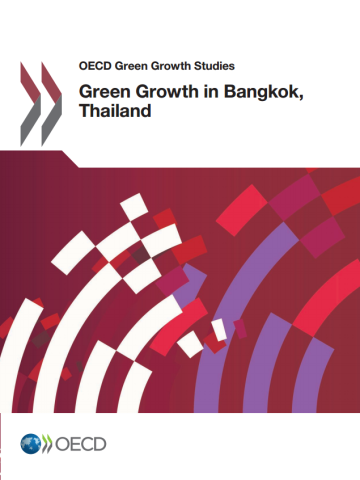
This report analyses the economic and environmental performance of Thailand’s Bangkok Metropolitan Region (BMR), assesses its policies and governance practices that promote green growth, and provides recommendations to enhance its green growth potential. Green growth aims to safeguard the natural assets, resources and environmental services on which our well-being relies. Cities play a critical role in national growth, but also generate negative externalities. They thus must be part of national solutions to stimulate growth and address climate change. Urban green growth policies encourage economic development while reducing either negative environmental externalities (for example, air pollution and carbon dioxide emissions that arise from urban activities) or the consumption of natural resources and environmental assets, including water, energy and undeveloped land. As a dynamic and emerging market economy, Thailand has recorded strong growth over recent decades and is expected to continue to do so, but this growth has come at a high environmental cost. The challenge is therefore to improve environmental outcomes while supporting continued growth in output and living standards. Much untapped potential remains, particularly in the following areas: land use and transport, renewable energy and energy efficiency in buildings, and water resources and solid waste management. Resilience to floods is also an urgent cross-cutting issue that requires further attention.




